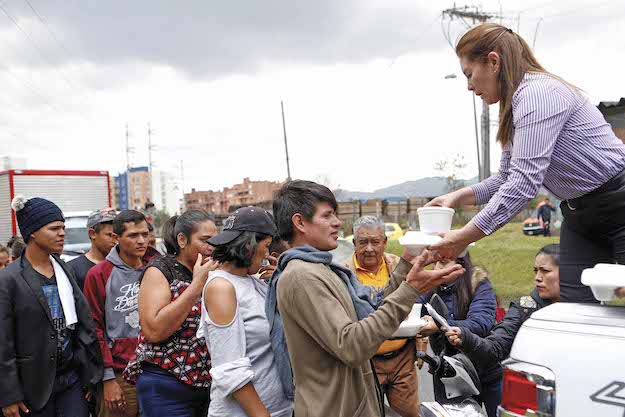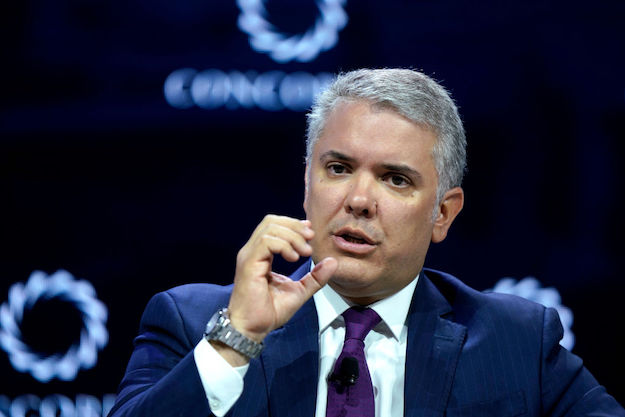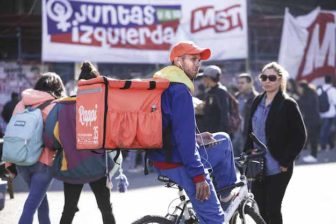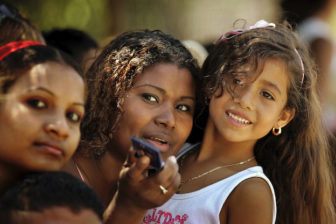This article is adapted from AQ‘s special report on migration
The stream of Venezuelans fleeing from the implosion of their homeland had become routine at Colombian border towns, until the coronavirus pandemic worsened, leading the most welcoming country in the region to temporarily close the seven posts separating the country from Venezuela. But with a 1,367 mile (2,200-km) border, and almost 2 million people already in the country seeking jobs, health care, education — a normal life — the continuing challenge facing Colombia is hard to fathom.
AQ talked to Felipe Muñoz, President Iván Duque’s adviser tasked with overseeing the response to the unprecedented influx of people. According to Muñoz, their goal is to integrate them — as fast as possible. This interview was edited for clarity and length.
AQ: What enabled Colombia to absorb the equivalent of almost 3.5% of its population in such a short period of time?
Felipe Muñoz: There isn’t a choice. With the coronavirus pandemic we had to take the extreme measure of refusing new migrants, but as normalcy resumes we will continue to welcome and integrate them. There is a historical responsibility — about 3 million Colombians fled to Venezuela years ago due to our own conflicts — and also an ethical imperative to help people fleeing a brutal regime. We decided we should consider this an opportunity, a development challenge.
We have government agencies and local authorities of the most impacted communities working together. In 18 locations we have regular meetings between national, regional and municipal governments as well as international actors cooperating on the ground.
Border municipalities have seen their population grow up to 40% in three years, but we have been able to distribute migrants along the territory. If you consider Peru, 80% of the migrants are in Lima. In Colombia now 30% of migrants are at the border, 70% are spread through 15 regional capitals.

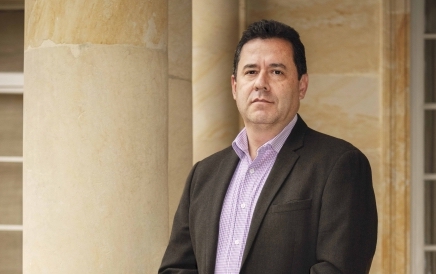
AQ: What keeps you up at night?
Muñoz: There is a lot of competition for the most complicated problem, but I’d say health. The coronavirus has put the whole world in an unprecedented situation, but even before we were dealing with an increase in sexual diseases, mental health issues — which is the most demanding and challenging problem — and even experienced cases of transmissible diseases that had been eradicated.
AQ: How is Colombia funding these initiatives?
Muñoz: We have received in international aid less than 10% of what we need. If we compare the response plans for the Rohingya, at $342 per migrant, or the Syrian regional plan at $290 per person, Venezuelans received $42, with 60% coming from the United States. It is not a competition and we are not looking to take away from Syria, of course.
We need to strengthen our relationship with development banks and involve the private sector to create a win-win strategy; there is a role for social impact bonds and other financial tools. We offered a 10-year tax incentive to attract companies to the border.
We need all sources to pitch in — the government, private sector, international aid and multilaterals.
AQ: Don’t you fear locals feeling left out?
Muñoz: We are not thinking of policies for migrants, we want to include migrants in our policies. This process is not about isolating migrants or creating refugee camps. That is the way we want to see this process, as a total inclusion on our society.
Colombians have been very generous with Venezuelan migrants and we need to be proud of that. But we have noticed a decrease in public support for our welcoming policy lately. We need to work harder in citizen security and labor market integration to contain a xenophobic sentiment in Colombia.
AQ: How do you get them jobs when many arrive without documents?
Muñoz: We decided to regularize as many migrants as we can, because we need them to compete under the same conditions, and to keep them away from illicit businesses. We try to learn about their skills to match them with the demand for labor and are working to expedite the process of validating diplomas. More than 20% have a university or a technical degree. It is a complicated bottleneck, but we are working on it.
The informal economy is where most of the competition between locals and migrants is happening. The services sector, especially hotels, restaurants and beauty salons, have employed many Venezuelans; there is also temporary work in agriculture. We don’t want to displace Colombians from the job market, so we are trying to create opportunities where it has been harder to find available workforce.
AQ: How do you see Colombia 10 years from now?
Muñoz: I am very optimistic or I couldn’t do this job! This is a young population, and now with new naturalized Colombians, new skills, new gains on the cultural side. We want to transform the thinking about migration from a humanitarian crisis to a development challenge. Because this phenomenon is going to be here for many years. We need to change our mind and begin to think that this is not an earthquake, it is a continuous earthquake.



